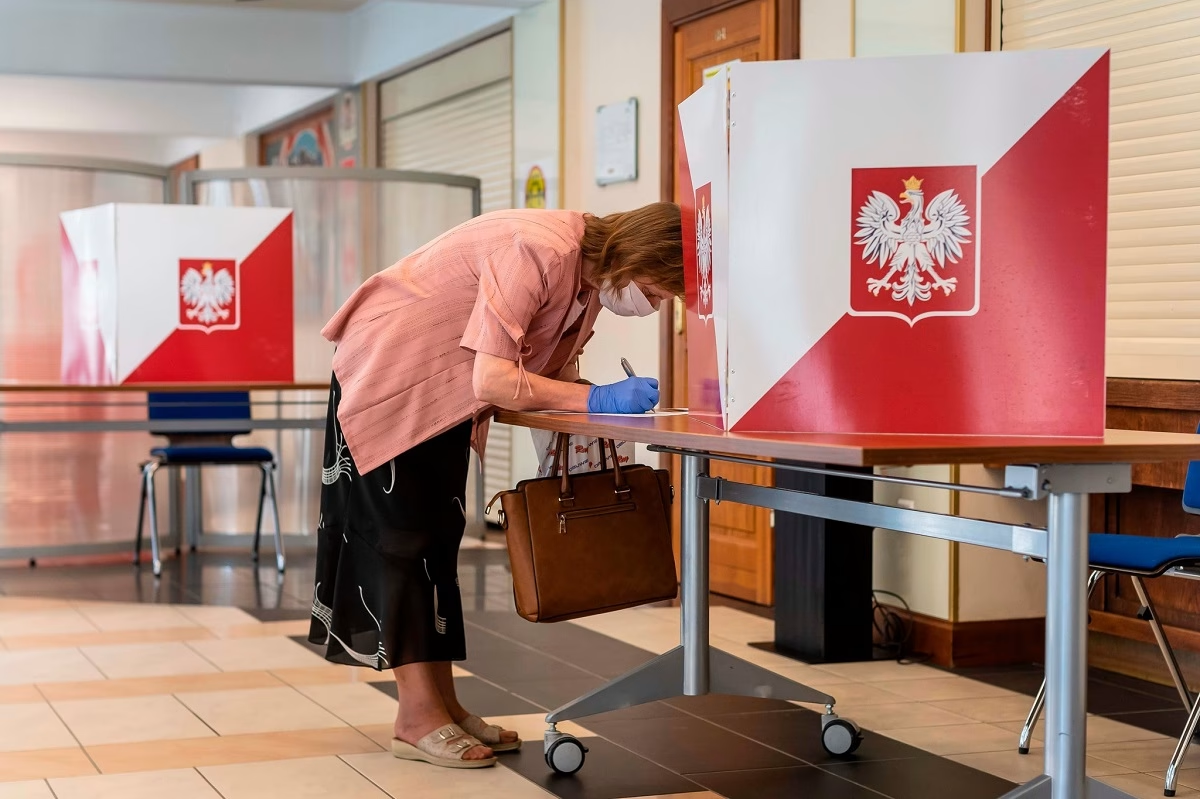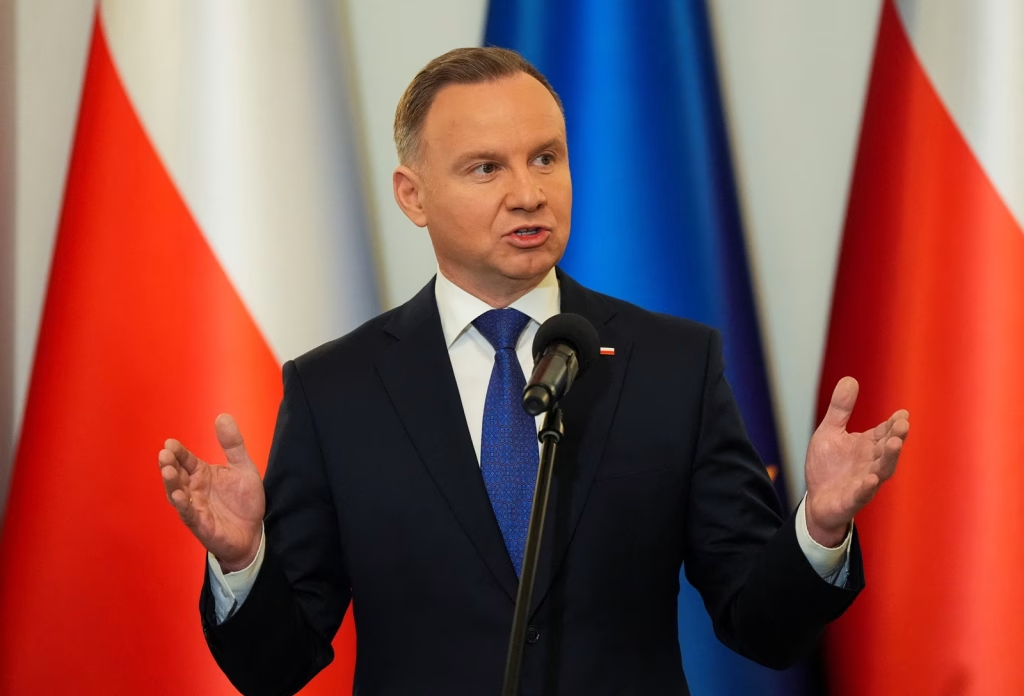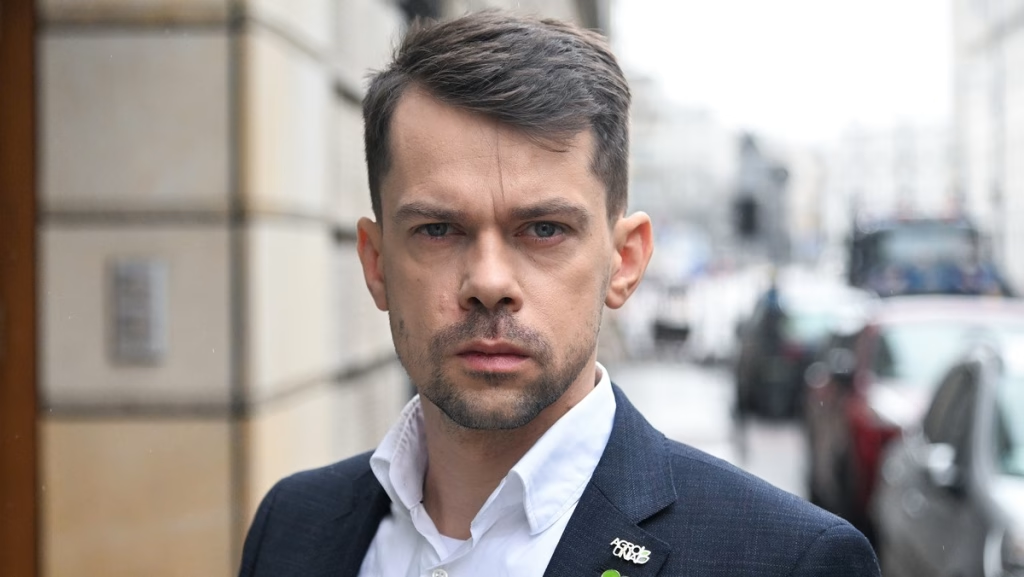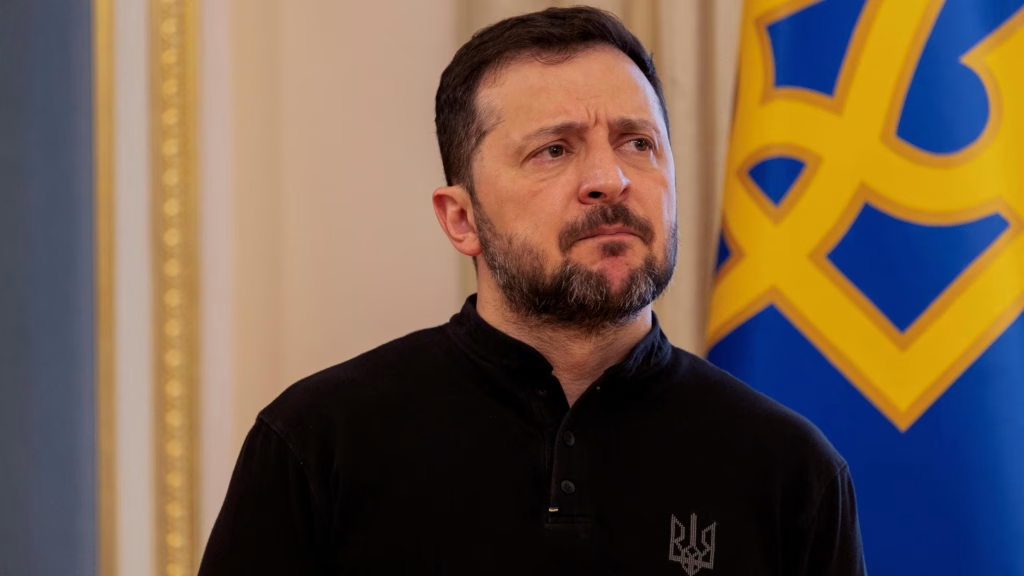
Poland’s Right Wing Faces Split Ahead of Presidential Elections
The upcoming presidential elections in Poland threaten to fracture the ruling camp and reshape the entire European right-wing political landscape. While President Andrzej Duda and former Prime Minister Mateusz Morawiecki engage in double-dealing, the U.S. adopts a wait-and-see approach, and Ukraine becomes a battleground for Polish elites.
Duda’s Double Game: A President Against His Own Party
The approaching presidential elections cast doubt on the unity and survival of the ruling Law and Justice (PiS) party, which now teeters on the brink of a split—a situation vividly illustrated by President Duda’s maneuvering. He remains cautious, avoiding full commitment. Duda has a strategic interest: he wants the defeat of his own party’s candidate, Karol Nawrocki, to strengthen his position at the upcoming party conference, where Jarosław Kaczyński could be ousted from leadership.
Yet, lacking absolute certainty in this scenario, Duda refrains from openly clashing with PiS leadership. Under pressure from Kaczyński, he will nominally campaign for Nawrocki—though only superficially. Initially, Kaczyński dismissed Duda’s passivity, viewing him as a low-rated lame duck while considering Morawiecki the main rival. However, the dynamics shifted in early March when Confederation’s candidate, Sławomir Mentzen, overtook Nawrocki in polls. Kaczyński then demanded a unified show of support for Nawrocki, forcing Duda to post a joint photo with him and declare his vote—a reluctant move that didn’t alter Duda’s underlying strategy.

Photo by Aleksandra Szmigiel / Reuters
Duda doubts Nawrocki’s victory despite his recent rise to 24% in polls. The president aims to exploit a potential defeat for personal gain while avoiding direct confrontation with Kaczyński. By playing both sides, he maintains ties with Morawiecki, keeping his options open. Yet, Duda’s toxic image—seen by many right-wing and liberal voters as a corrupt opportunist blindly loyal to Kaczyński—limits his electoral influence.
His actions failed to stem Confederation’s drift toward PiS, serving only as a loyalty display. Duda also cannot mediate between PiS and Confederation ahead of a potential runoff, as he lacks rapport with Mentzen’s camp. Should PiS lose, Duda and other establishment figures oppose merging with Confederation, knowing Mentzen would demand leadership—a scenario that would weaken Duda. Instead, a tactical alliance between a reformed PiS and Confederation is more likely, with power strictly divided within PiS’s own framework.
Only U.S. intervention could alter this trajectory, but Washington shows no signs of involvement, likely remaining passive.
Morawiecki’s Romanian Gambit
Not to be outdone in covert maneuvering, former PM Mateusz Morawiecki also plays a double game—cultivating ties with George Simion, leader of Romania’s right-wing AUR party and a presidential candidate. This move signals loyalty to Trump’s agenda and seeks U.S. backing ahead of Poland’s elections.
Simion, a nationalist, led Romania’s first-round polls with 33-35%, though his runoff chances remain 50-50. His anti-liberal stance, support from a disqualified former frontrunner, and potential U.S. backing (amid U.S.-EU tensions over Romania’s election) bolster him. However, lacking a decisive lead, he remains vulnerable to administrative pressure from Romanian authorities.

Photo by Daniel Gnap / PAP
PiS’s support for Simion is less about his electoral prospects and more about currying favor with the U.S., which could aid PiS domestically. For Morawiecki—tasked by Kaczyński post-2023 elections with liaising with right-wing EU and U.S. parties—this outreach is crucial. Initially, Kaczyński assigned this “toxic” role to sideline Morawiecki if Trump lost. But Trump’s victory elevated Morawiecki’s standing.
By engaging AUR, Morawiecki seeks U.S. support amid PiS’s internal strife, as Trump’s team disdains Kaczyński’s passivity and duplicity. Though the U.S. may avoid interfering in Poland’s elections, post-election collaboration with PiS—and possibly Morawiecki—could follow, which he actively courts through his international dealings.
Poland’s “Port Gambit”
Even PiS’s rivals in the Civic Platform (PO) are vying for Trump’s attention—leveraging Ukraine, a sensitive issue for the U.S. president. Polish EU Commissioner Michał Kolodziejczak proposed a 50-year lease on Odesa’s port, a move with clear strategic calculus. The EU wields it as pressure in talks with Russia and the U.S. over Ukraine, particularly regarding rare-earth deals.
For Poland, it’s an election ploy. Ukraine publicly rejects the idea but strategically uses it to strengthen its negotiating position. Should U.S.-Ukraine relations sour, the deal might materialize: Poland and other EU states could deploy peacekeepers near Ukrainian ports (Odesa, Izmail, Chornomorsk, Yuzhne, Reni) in exchange for management shares, shielding assets from Russian strikes. For now, this remains theoretical, with all sides using it to gain leverage in talks with Washington.

Photo by Newsweek
Domestically, Poland’s government frames the port deal as resolving border conflicts with Ukrainian farmers blocking grain imports. PO’s Kolodziejczak—leader of the agrarian AGROunia movement—aims to boost PO candidate Rafał Trzaskowski’s standing among farmers, a group highly critical of him. By showcasing efforts to meet their demands, PO hopes to soften opposition and lift Trzaskowski’s ratings.
Ultimately, this was an indirect strike at PiS, which is floundering and losing even its core voters.
Ukraine’s Role in Poland’s Elections
Ukraine is generally very important to both sides, and the ties between Ukraine’s main political forces and Poland’s leading political parties have only strengthened since the start of U.S.-Ukrainian negotiations. While Ukraine’s president is betting on cooperation with Donald Tusk’s liberal government, former Ukrainian leader Petro Poroshenko is intensifying his engagement with the opposition, represented by PiS. Volodymyr Zelensky continues passive contacts with Poland’s leadership, represented by the establishment of the ruling Civic Platform party, using it as one of the most convenient channels for communication with EU officials friendly to him, such as Ursula von der Leyen and Charles Michel. The Polish government remains interested in Ukrainian economic assets—ports and industrial enterprises—as “payment” for its political and military support.
In this context, Ukraine’s president sees Warsaw as an interested party capable of negotiating more favorable terms for both itself and Ukraine as its partner in implementing such a plan with other EU countries and the UK. In turn, Donald Tusk views an informal mediating role in EU-Ukraine negotiations as an opportunity to strengthen his position in resolving intra-European issues. The main negotiations are currently conducted through Ukraine’s ambassador to Poland, Vasyl Bodnar. Meanwhile, in the public sphere, Civic Platform and its presidential candidate Rafał Trzaskowski maintain a moderately negative stance toward Ukraine. This is due to the negative sentiment among both moderate and even hardline Civic Platform voters regarding financial and military aid to Ukraine, Ukrainian refugees, and the prospects of sending Polish troops to support the Ukrainian Armed Forces.

Photo by ABC News
Given this, the situation is unlikely to change until the end of the presidential election campaign in early June. At the same time, Petro Poroshenko’s “European Solidarity,” the main opposition party to Volodymyr Zelensky, has almost completely reoriented toward contacts with PiS following Donald Trump’s victory in the U.S. presidential election and his increased pressure on Ukraine’s incumbent president to hold presidential elections. From the 2010s until 2024, Poroshenko maintained equally partner-like relations with both PiS and Civic Platform. However, after coming under attack from Zelensky in 2021—who at the time relied on the U.S. Democratic administration—he sought support from both parties.
But in the current scenario, Civic Platform is considered unfriendly toward Trump, and Poroshenko, who aims to secure support from Trump allies in potential elections, is now focusing on the more Trump-compliant Jarosław Kaczyński. In this situation, the greater interest in contacts comes from the Polish side, as Kaczyński sees engagement with potential “pro-Trump” politicians in Ukraine as a way to improve his own relations with Washington. However, ahead of Poland’s presidential election, active steps from PiS are also unlikely due to their limited political opportunities and strict surveillance by Ukraine’s SBU over the activities of opposition Ukrainian politicians during their trips to Poland, which are often hindered or directly blocked.
This means that such a method of “summoning the spirit of Trump” is unlikely to work, especially given that Ukrainian elections, as is already clear, will not happen anytime soon, and Kyiv-Washington negotiations have reached a long-term deadlock. Meanwhile, Poland’s right-wing forces, ahead of the presidential election, are experiencing internal divisions and are fighting liberals on the Ukrainian front, relying only on their own strength and luck.

